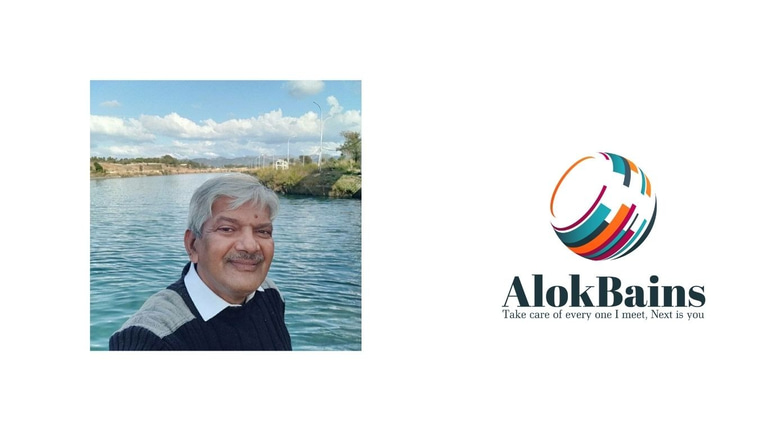National scenario Hospital Pharmacy
Hospital Pharmacy Definition, National and International Scenario of Hospital Pharmacy.
HOSPITAL PHARMACY
Alok Bains
4/2/20235 min read


Hospital Pharmacy
National & International Scenario
D. Pharmacy Curriculum
Alok Bains
Hospital Pharmacy
Compiled by: Alok Bains
Definition
“Hospital pharmacy is an organisation or department of the hospital to procure, pack, store, preserve, sterilise, compound, dispense or deliver medicines and medical devices on the prescription of a medical practitioner to the patient. It also advises healthcare professionals and patients regarding safe, effective and efficient uses of medicines and medical devices. ”
“Practice of pharmacy by a registered pharmacist in a hospital is termed as hospital pharmacy”
National Scenario of Hospital Pharmacy
The scenario of hospital pharmacies in India is changing drastically in recent past years. It is improving drastically through the efforts of the Government of India, Various professional bodies, Pharmacy Council of India. But still, some shortcomings exist for further improvement in the hospital pharmacy services in the best interest of the patients. The followings are the all positive and negative scenarios regarding hospital pharmacies in India.
Regulatory changes: Pharmacy Council of India has issued guidelines for hospital pharmacy practices. All pharmacists working in hospital pharmacies observe these guidelines to proved error-free and smooth services to the patients. These guidelines include standardised procedures and requirements for hospital pharmacies.
The Government of India has implemented several regulatory changes to improve the quality of healthcare services that also include hospital pharmacies. These include the implementation of a National list of essential medicines (NLEM), the National Pharmaceutical Pricing Authority (NPPA), The introduction of Goods and Services Tax (GST), etc. These implementations have a significant impact on the quality of the hospital pharmacies' services. They ensure the availability of all required medicines for the patients at the lowest cost and standard quality.
Adapting Technologies: Hospital pharmacies in India are adopting technology to streamline the processes and to improve the efficacy of the drugs. Electronic medical records, inventory management software, automated dispensing systems, bar code technology, QR scanning, etc are adopted by the hospital pharmacy. These all lead to reduce medication errors, improve accuracy in dispensing and enhance patient safety.
Collaborations: Collaboration of the hospital pharmacy with other healthcare professionals such as physicians, nurses, etc provides better patient cares.
Patient-centred services: Hospital pharmacies are shifting their focus towards patient care. They are providing personalised medication management services, patient cares and patient counselling. These all ensure the best possible care for the patient. This leads to improving patient outcomes and satisfaction.
Clinical pharmacy: Hospital pharmacies are providing clinical pharmacy services that include medication therapy management, pharmacotherapy consultation etc in the best interest of the patient's health.
Specialised services: Average age of the population in India is increasing. This put the burden of chronic diseases on the healthcare service providers also including hospital pharmacies. Especially oncology, cardiology and neurology. There is an increase in demand for specialised services. To meet these demands, hospital pharmacies are offering personalised medication systems. This includes patient counselling, dose adjustment, drug interaction screening, etc.
Quality healthcare services: Human population in India is growing with an increase in the quality of life. This has also put a burden on healthcare services to meet the demand for quality healthcare services from the general public.
Shortage of pharmacists: This is a negative aspect of hospital pharmacies in India. India is suffering from a chronic shortage of competent pharmacists to handle, dispense and run hospital pharmacies to cater for the demand of patients from inland and other countries. Both inland patients and patients from other countries expect hospital pharmacy services to match international standards. But the crunch of pharmacists is badly affecting this sector. The shortage of competent pharmacists is mainly due to the limited number of pharmacy colleges.
The Pharmacy Council of India is constituted under the pharmacy act to provide uniform education throughout India and to maintain the standard of pharmacy education in India to produce quality pharmacists. PCI is approving pharmacy institutions to meet pharmacists' shortages. But, it is the responsibility of PCI to stop the dilution of education standards.
Proper implementation of the Drug and Cosmetic Acts: The Drug and Cosmetic Acts specify several requirements for the sale, import and manufacturing of drugs. State government and state government appoints several officers for proper implementation of the act. But still, there is a shortage of officers for proper implementation of the act. Compiled by: Alok Bains
Hospital Pharmacy
Compiled by: Alok Bains
International Scenario of Hospital Pharmacy
The scenario of hospital pharmacy varies from country to country. But all have the same goal to provide effective and safe medications to patients. Their functioning depends upon the country's healthcare system. Hospital pharmacies in the United States of America, the United Kingdom, Australia, Canada and Japan are well established. Most of the other countries followed the functioning of hospital pharmacies in these countries.
In these countries, hospital pharmacies are an integral part of patient health care. They work closely with physicians and other healthcare professionals. They are responsible to manage inventory, educating patients regarding drug safety, educating other healthcare professionals and participating in medication safety initiatives, drug formulary management, medication review, and drug information services, Even in India hospital pharmacies are involved in all these activities.
Hospital Pharmacy
Compiled by: Alok Bains
Scope of Hospital Pharmacy
Hospital pharmacy works within the hospital setting. They provide specialised pharmaceutical care to the out-door and in-door patients of the hospital. The scope of hospital pharmacists includes various activities and responsibilities. Such as procurement, storage, compounding, dispensing, medication monitoring, etc. All aim for safe and effective medication for the patients.
Procurement Section: The procurement section of the Hospital Pharmacies
estimate the requirements of drugs for a specified period.
Decides specification of drugs to be procured. These specifications are quality, quantity, strength, etc
Select reliable and licenced vendors.
Receive, verify and store drugs in the quarantine area.
Check the quality of the received drugs and then store the drug for dispensing
Stores Sections:
The store section of the hospital pharmacy receives the drugs procured with a quality assurance report.
Store the drugs as per storage conditions mentioned on the label of the drug containers
Issue drugs to the dispensary for outdoor patients and indoor patients.
Maintain the records showing stock on hand
Physical checking of drugs on hand to note the expiry of drugs.
Drug utilisation evaluation: Prepare drug use patterns and reports to inform the authorities.
Dispensary Sections
Receiving drugs to dispense to outpatients and inpatients in hospitals.
Maintaining facilities for repacking the drugs.
Dispensing medicines on the prescription of a registered medical practitioner. Dispense with an auxiliary label in a packing with all information written on the packing.
Maintain a minimum level of drugs in the dispensary on day to day basis.
Implementation of ABC analysis to control drugs as inventory,
Drug information Services: Provide drug information to healthcare professionals, patients and their families. The main aim of drug information services is to ensure patient safety and effective medication.
Patient counselling section: Counsel the patient to ensure that the patients understand their medication and potential side effects.
Education and Training
Establishment and maintenance of a drug information centre in the hospital,
Establishment and maintenance of drug utilisation study centre,
Developing health awareness among the general public.
Educating/Training would be a pharmacist (Student Pharmacist),
Educating junior pharmacists and other hospital pharmacy staff,
Counselling of medical staff, nurses and patients regarding safe, effective and efficient uses of drugs.
